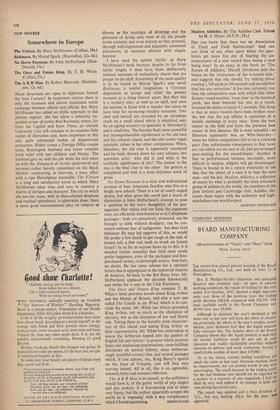DID you know that there was an Association of Track
and Field Statisticians? And can you think of any other sport where the spec- tators get more fun out of hearing the an- nouncement of a new record than seeing a race being won? In an essay in this book on 'The Future of Athletics,' Harold Abrahams puts the blame on the 'misfortune of the 4-minute mile,' and suggests that one should 'try talking about running 1,760 yards in 240 seconds and see whether that has any attraction.' It has less, certainly; but then the comparative ease with which that other famous round number, 'even time' in the hundred yards, has been bettered has not, as a result, lessened the desire to better 9.3 seconds. The thing is that so many records have been broken since the war that the top athlete is conscious of a double challenge in every race : from the best runner in the field and from the previous best runner at that distance. He is even resentful—as Ibbotson apparently was on Whit-Saturday- when his fellow competitors fail to set a cracking pace. One unfortunate consequence is that races are run which are no race at all, just pre-arranged pace-making for the record-beater. Another is that as performances become, inevitably, more difficult to surpass, athletes will get discouraged. There is bound to be a return eventually to the idea that the object of a race is to beat the next man—not the last. Modern Athletics, a collection of essays by what is probably the most articulate group of athletes in the world, the members of the joint Oxford and Cambridge club, Achilles, dis- cusses these topics with the authority and high- mindedness one would expect. GEOFFREY NICHOLSON


































 Previous page
Previous page